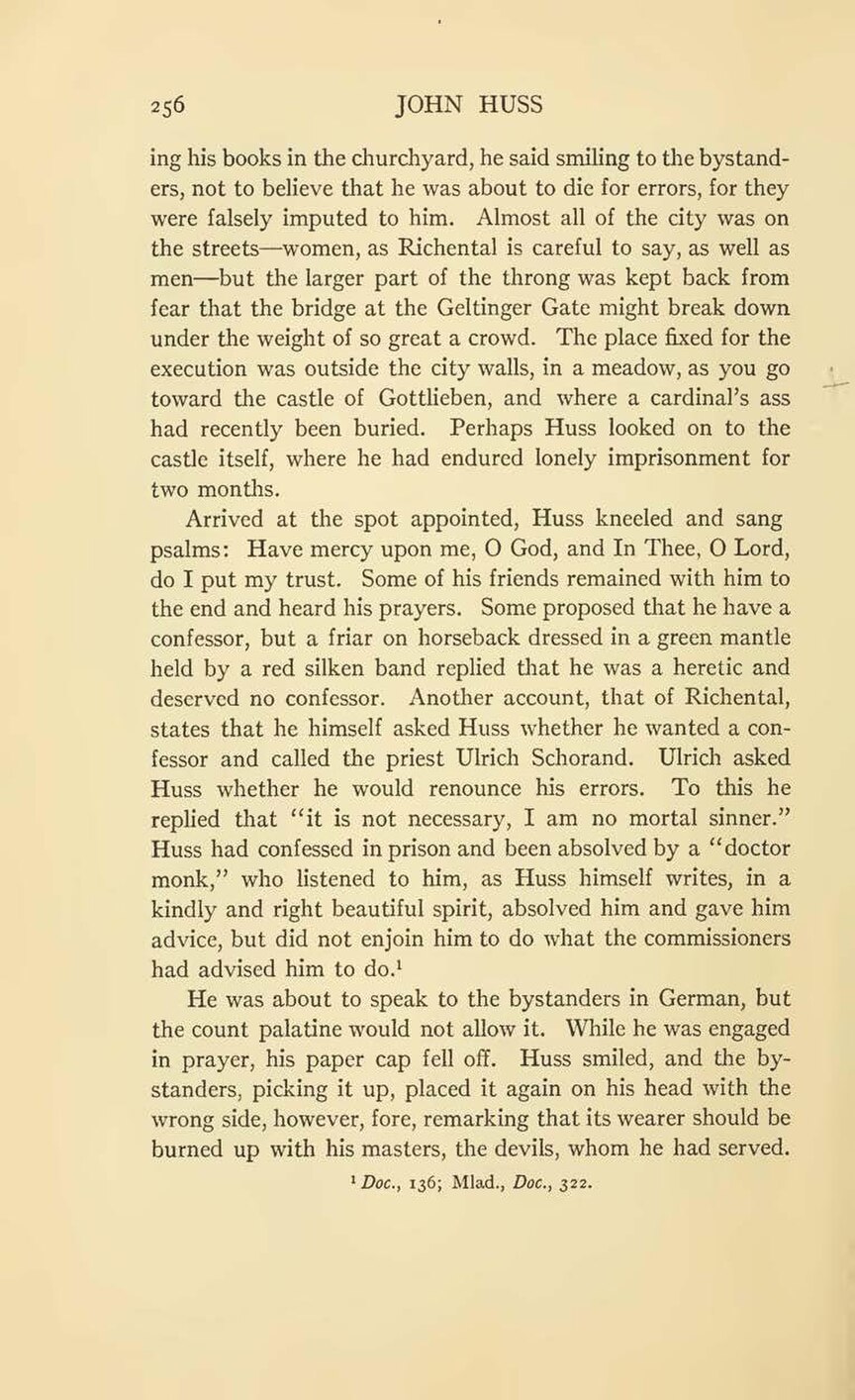ing his books in the churchyard, he said smiling to the bystanders, not to believe that he was about to die for errors, for they were falsely imputed to him. Almost all of the city was on the streets—women, as Richental is careful to say, as well as men—but the larger part of the throng was kept back from fear that the bridge at the Geltinger Gate might break down under the weight of so great a crowd. The place fixed for the execution was outside the city walls, in a meadow, as you go toward the castle of Gottlieben, and where a cardinal’s ass had recently been buried. Perhaps Huss looked on to the castle itself, where he had endured lonely imprisonment for two months.
Arrived at the spot appointedm Huss kneeled and sang psalms: Have mercy upon me, O God, and In Thee, O Lord, do I put my trust. Some of his friends remained with him to the end and heard his prayers. Some proposed that he have a confessor, but a friar on horseback dressed in a green mantle held by a red silken band replied that he was a heretic and deserved no confessor. Another account, that of Richental, states that he himself asked Huss whether he wanted a confessor and called the priest Ulrich Schorand. Ulrich asked Huss whether he would renounce his errors. To this he replied that “it is not necessary, I am no mortal sinner.” Huss had confessed in prison and been absolved by a “doctor monk,” who listened to him, as Huss himself writes, in a kindly and right beautiful spirit, absolved him and gave him advice, but did not enjoin him to do what the commissioners had advised him to do.[1]
He was about to speak to the bystanders in German, but the count palatine would not allow it. While he was engaged in prayer, his paper cap fell off. Huss smiled, and the bystanders, picking it up, placed it again on his head with the wrong side, however, fore, remarking that its wearer should be burned up with his masters, the devils, whom he had served.
- ↑ Doc., 136; Mlad., Doc., 322.
